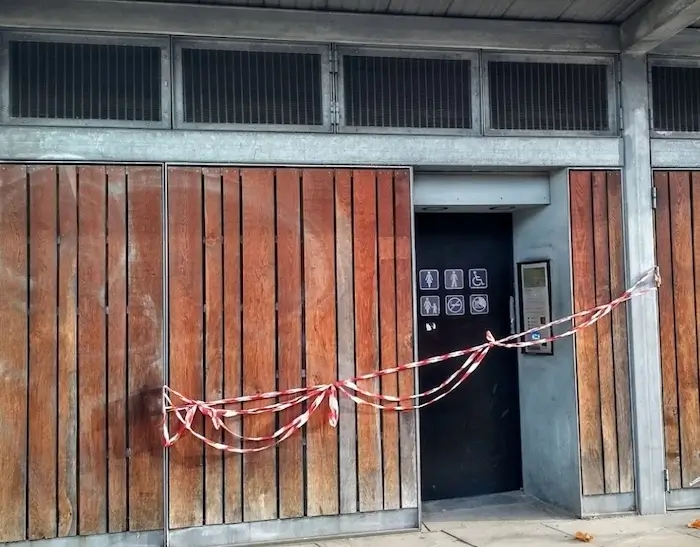Research by Age UK London has revealed the extent to which public toilet provision in London has declined over the past decade. The charity is urging local authorities to take action.

A new report by Age UK London, Lifting the lid: Looking for a better understanding of local authorities and public toilet provision in London, is based on information collected through Freedom of Information (FOI) requests. Thirty of London’s 33 local authorities responded to the request and it reveals a worrying decline in public toilet availability.
It is the first-time that local authorities in London have been scrutinised to this extent on a range of subjects related to the provision of public toilets.
The findings show that since the 2013/14 financial year, three times as many public toilets have been closed as have been opened. Specifically, 97 public toilets have been permanently closed, while only 32 new facilities have been opened.
The key findings from the report include:
- Decline in Public Toilet numbers: At least 97 public toilets have been closed since the 2013/14 financial year. Two local authorities have closed over ten public toilets in the past decade.
- A small number have opened: Half of the responding local authorities have not opened any new public toilets in the past ten years. Only 32 new public toilets have been opened across 11 local authorities. Four councils were unable to report if any new toilets had opened.
- Current Provision: The 30 local authorities that responded to the FOI request maintain a total of 650 public toilets, averaging just under 22 per local authority. However, there are significant disparities, with some councils managing as few as one public toilet. Seven councils manage fewer than ten public toilets, while three manage more than 50.
- Community Toilet Schemes: 12 councils have implemented Community Toilet Schemes (CTS), with participating businesses making toilets available to non-customers. These schemes vary greatly in size and effectiveness. Schemes ranges from four to ninety-two toilets, with most toilets in the largest schemes run by cafes, pubs, and other businesses.
- Public Toilet Strategies: Only two local authorities have a public toilet strategy, with some councils developing new strategies. Age UK London believes that all local authorities would benefit from a public toilet strategy to coordinate actions across council departments.
- Dedicated Employees: Fewer than half of London local authorities have a specific employee responsible for public toilet provision. Seventeen councils responded that they did not have a specific employee, though this does not mean there are no employees with some responsibility for this service. For example, one council mentioned having 'a number of employees working on the CTS', and another indicated the service was ‘managed by the Street Cleaning Team'.
- Budget Expenditure: fifteen of the 30 local authorities were unable to provide information on budget expenditure for public toilets. Reasons included lack of data, difficulty in extracting information, and expenditure being part of broader contracts. The lack of data made available by councils makes it difficult to draw definitive conclusions about changes over time.
Since 2022, Age UK London has been campaigning for improved public toilet provision, highlighting its importance for all Londoners, particularly older people, and those with certain health conditions. In 2022 the charity published its report, Public Toilets in London: The views of older Londoners, which included findings showing 81% of respondents thought provision in their borough was bad. 52% avoided drinking water before going to some places and 9 in 10 Londoners have considered toilet provision before making a journey to a particular place.
Age UK London are calling on local authorities, the Mayor’s Office, Transport for London, and central government to take urgent action to improve public toilet provision. Key recommendations include:
- Improving Public Information: Enhancing signage, public information, and staff training to increase awareness of available facilities.
- Developing Public Toilet Strategies: Local authorities should create and implement public toilet strategies to ensure coordinated efforts across departments.
- Calling on the Government to ensure councils have the funding to ensure a sufficient level of provision: Ensuring sufficient budget allocation for the maintenance, refurbishment, and opening of public toilets.
- Supporting Community Toilet Schemes: Expanding and promoting schemes to help increase awareness of public toilet availability.
John McGeachy, Campaign Manager, Age UK London said: "Public toilets are essential for a civilised and welcoming city. For older people, those with health conditions and many others, the availability of public toilets can determine whether they feel able to leave their homes.
“We’ve known provision has been declining in London and across the country for a long time, but this new report means we have a much clearer picture about the scale of decline.
"We urge all relevant bodies to take immediate action to address this pressing issue."
You can download a copy of the report here.




